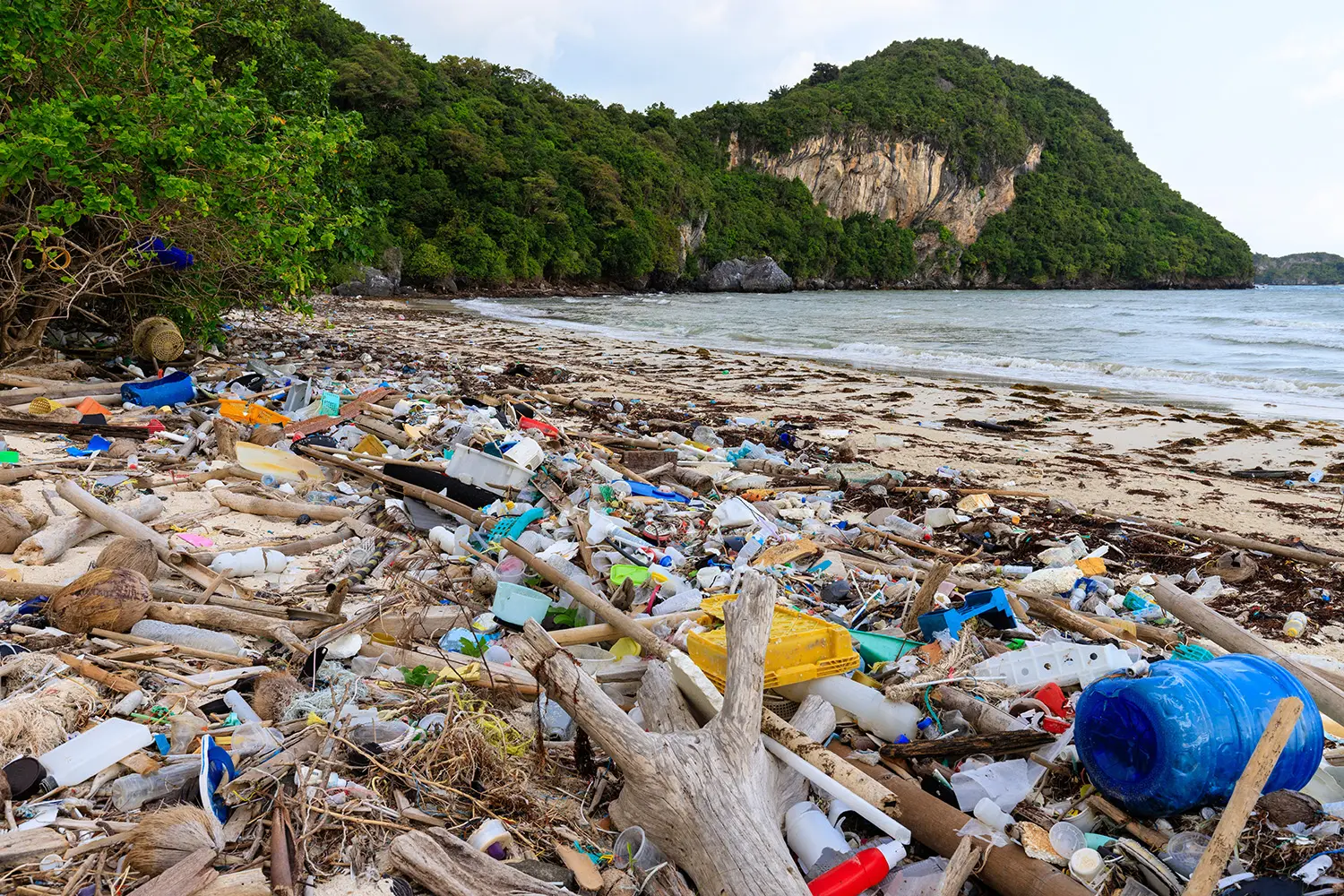Plastic pollution is one of the most pressing environmental crises of our time. Each year, more than
400 million tons of plastic are produced globally—a volume roughly equal to the weight of the human population
1. Despite growing awareness, plastic production is projected to triple by 2060.
The Industry Behind Plastic: Tied to Fossil Fuels
Plastic production is deeply rooted in the fossil fuel industry. An estimated
98% of plastics are derived from fossil fuels like oil and gas
5. For major fossil fuel companies, plastics represent a growing revenue source as the global transition to renewable energy reduces demand for traditional fuels
1.
Delphine Levi Alvares from the Center for International Environmental Law (CIEL) explains that fossil fuel companies are now prioritizing petrochemical production, which includes plastic manufacturing, as a survival strategy. Companies like ExxonMobil are investing billions in plastic production facilities while promoting “advanced recycling” as a public relations strategy
1, 5. However, critics argue this approach is largely ineffective and misleading.
The Recycling Myth: Why It Doesn’t Work
The concept of recycling has long been promoted as a solution to the plastic waste crisis. However, only
9% of all plastic ever produced has been recycled
1. This is because most plastics degrade during the recycling process, making it impossible to reuse them indefinitely
6. The recycling rates are further hindered by contamination and the complexity of sorting different plastic types.
Historically, much of the world’s plastic waste was shipped to countries with less stringent regulations, like China. When China banned plastic imports in 2018, waste exporters turned to Southeast Asia, leading to significant environmental and public health issues
6. This practice, often referred to as “waste colonialism,” highlights how wealthier nations offload their waste burden onto developing countries with inadequate recycling infrastructure.
The Human Cost: “Cancer Alley” and Beyond
The environmental and health impacts of plastic production disproportionately affect marginalized communities. For example, the 85-mile stretch between Baton Rouge and New Orleans in Louisiana, known as
“Cancer Alley,” is home to numerous petrochemical plants. Residents here, predominantly low-income and Black, experience higher rates of cancer and respiratory diseases due to toxic emissions
6.
These health risks are not confined to production sites. Microplastics, which are released throughout the lifecycle of plastic, have been found in human blood, fish, and even Arctic ice
6. These tiny particles pose unknown long-term health risks but are already linked to hormonal disruptions and other illnesses.
Plastic Waste and Global Policy Failures
Efforts to establish a legally binding global treaty on plastic pollution have faced significant hurdles. At the recent negotiations in Busan, South Korea, countries failed to agree on measures to reduce plastic production or address the toxic chemicals in plastics
3. While over 100 nations advocated for ambitious production limits, resistance from major plastic producers like Saudi Arabia, India, and the United States stalled progress.
This deadlock reflects deeper systemic issues. For any global treaty to be effective, all participating nations must agree—a process that allows a few dissenting voices to derail meaningful action.
Greenwashing and Industry Tactics
The plastic industry has long used greenwashing to shift blame for plastic waste onto consumers. Campaigns emphasizing individual responsibility, such as the infamous
“Crying Indian” ad, have deflected attention from systemic issues like overproduction and inadequate recycling infrastructure
6. Similarly, initiatives like the Alliance to End Plastic Waste, funded by major plastic producers, focus on cleanup efforts rather than addressing the root cause: production.
Advanced recycling, another industry-promoted solution, has been criticized as a “PR stunt.” While companies like ExxonMobil claim it can convert plastic waste into reusable materials, critics argue it accounts for only a tiny fraction of plastic production and often results in more emissions than traditional recycling methods
1.
Pathways to Change: Legislation and Innovation
Addressing the plastic crisis requires systemic change. Policies like the European Union’s
Single-Use Plastics Directive are a step in the right direction. This legislation bans disposable plastic items like cutlery and straws and sets ambitious targets for recycled content in plastic products
5. However, such measures need to be implemented globally to be truly effective.
Beyond legislation, investment in alternative materials and local recycling infrastructure is critical. Wealthy nations must develop their own waste management systems rather than exporting the problem. Additionally, reducing plastic production at the source is essential to breaking the cycle of pollution.
A Call for Ambition
The plastic crisis is a multifaceted challenge that demands coordinated global action. As current systems fail to adequately address the problem, the world must shift focus from managing waste to reducing production. This involves holding corporations accountable, implementing stringent policies, and fostering innovation in sustainable materials. Without decisive action, plastic production and its associated impacts will continue to grow, leaving a legacy of environmental destruction for future generations.
12/04/2024 – This article has been written by the FalseSolutions.Org team
References
- Tamsin Walker, “Why Plastic Production is Hard to Stop,” DW, December 2, 2024
- “How These Companies Tried to Greenwash Their Plastic Waste,” DW Planet A, October 14, 2022
- “Negotiators Fail to Reach an Agreement on a Plastic Pollution Treaty,” NPR, December 2, 2024
- “Your Plastic Waste Might Be Traded by Criminals,” DW Planet A
- “Recycling Won’t Solve Our Plastic Problems,” Al Jazeera
